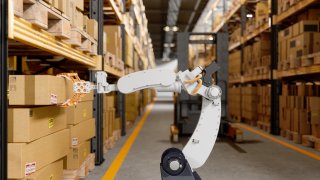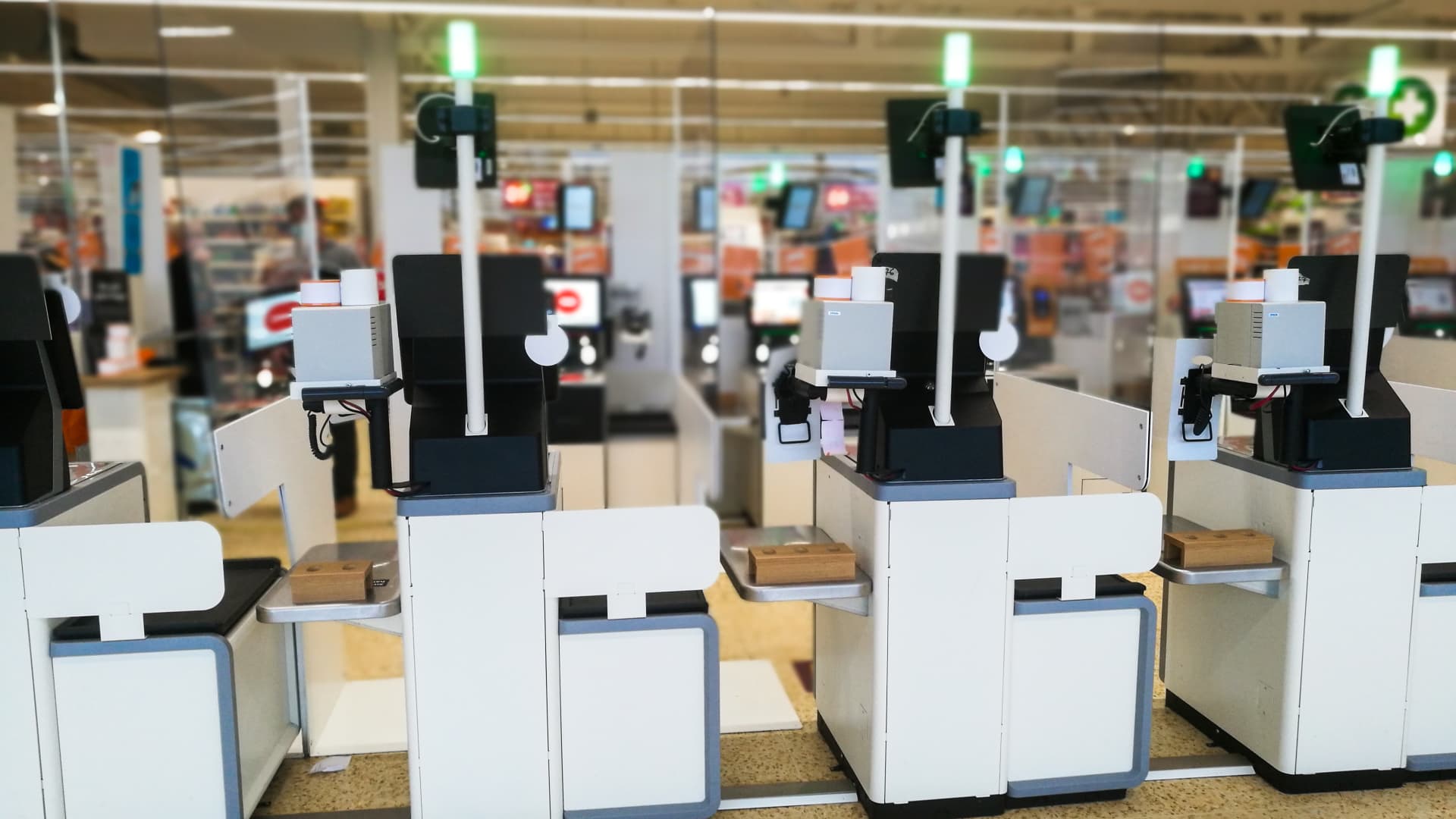
For years, companies have been working toward automating repetitive jobs through algorithms that can complete administrative tasks, robots that can streamline manufacturing and drones that can deliver goods.
But while futurists have long warned of "job-stealing robots," the coronavirus pandemic has heightened fears that automation will replace the jobs of workers. Because of social distancing measures, many organizations — from restaurants to retailers — have been forced to find ways to operate with as few employees physically present as possible. And researchers have found that this kind of automation is more quickly adopted during economic downturns.
Coronavirus "has caused an acceleration of some labor trends like automation," says Karen Fichuk, CEO of Randstad North America, adding that out-of-work Americans may need to develop new skills in order to find new jobs. "What we're seeing is this significant need for massive up-skilling and retraining, especially for workers who have been laid off."
Now, a new report from The Brookings Institution indicates that Black and Latino workers are among those most likely to have their jobs replaced.
Get DFW local news, weather forecasts and entertainment stories to your inbox. Sign up for NBC DFW newsletters.
"Both advances in automation and the economic impact of the COVID-19 pandemic disproportionately affect Black and Latino workers. These workers are more likely to be employed in jobs that are at high risk of being automated in the next two decades and that cannot be done remotely," reads the report. "Of the five occupations that employ the highest number of Black and Latino workers, four have experienced the highest losses during the pandemic: retail salespersons, cashiers, cooks, and waiters and waitresses."
"The impact is likely to be greater for Black and Latino workers and communities because Black and Latino workers are overrepresented in 11 and 13 respectively of the 30 jobs that employ the most workers in the U.S. that are at high risk of being significantly changed or eliminated due to automation," explains Kristen Broady, lead author of the report and policy director of The Hamilton Project at Brookings.

The jobs most at risk of automation often share one thing in common: repetition.
Money Report
"People who are employed in jobs that entail a single, repetitive task like toll booth operators who collect money and provide change, are already being replaced by automated vehicle identification electronic toll collection systems," explains Broady. "People who are employed in production jobs like order fillers, packers, sorters and stockers are being replaced by various types of robots that can pick specific products, stack items including pallets, sort packages and organize warehouse inventory. Workers employed in repetitive data entry positions are being replaced by automated software programs that can process orders and run payroll functions among other tasks."
To address the potentially negative impacts of automation, the report calls for skills training.
"Labor organizations can encourage companies to provide workforce training so that employees can work with automation, instead of being replaced by it," adds Broady. "Automation will create a need for new tasks, for workers who can develop, program and work with various types of automated technology if they have the necessary training and skills."
And many labor organizations hope they can play an active role in reskilling workers rather than replacing them. Bureau of Labor Statistics data indicates that union membership among Black and Latino workers is growing faster than other racial groups. Across all U.S. workers, Black workers have the highest union membership rate. An estimated 12.3% of Black workers and 9.8% of Latino workers are members of a union.
"When technology comes into a union worksite, we're able to negotiate to get a fair share of the increased productivity and make sure it's healthy and safe — it's called bargaining acquiescence. We bargain to get a fair share for workers. But society as a whole doesn't have that," says Richard Trumka, president of the AFL-CIO. "Technology can either lessen or increase the trajectory of inequality. Technology is neither good nor bad, it's how it's deployed and it's who gets the benefit of it. If the people at the top get all the benefits from it, then it's bad. If it gets shared equally, then it can be good."
Don't miss:
- The student debt forgiveness debate highlights the racial gap in what borrowers owe
- Union enrollment has declined for decades, but union workers still earn 19% more
- How the coronavirus pandemic may be causing support of labor unions to rise






